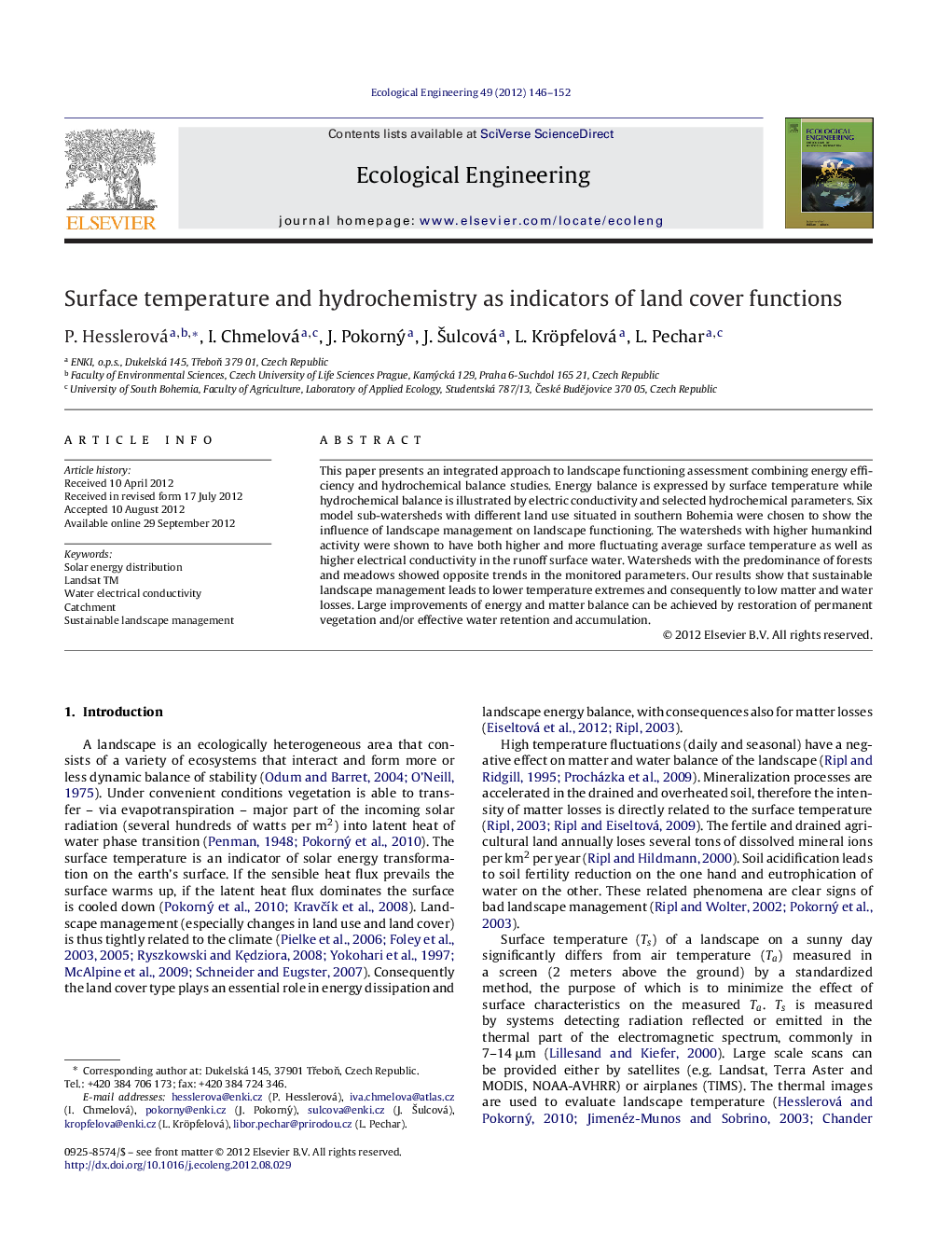| Article ID | Journal | Published Year | Pages | File Type |
|---|---|---|---|---|
| 4389897 | Ecological Engineering | 2012 | 7 Pages |
This paper presents an integrated approach to landscape functioning assessment combining energy efficiency and hydrochemical balance studies. Energy balance is expressed by surface temperature while hydrochemical balance is illustrated by electric conductivity and selected hydrochemical parameters. Six model sub-watersheds with different land use situated in southern Bohemia were chosen to show the influence of landscape management on landscape functioning. The watersheds with higher humankind activity were shown to have both higher and more fluctuating average surface temperature as well as higher electrical conductivity in the runoff surface water. Watersheds with the predominance of forests and meadows showed opposite trends in the monitored parameters. Our results show that sustainable landscape management leads to lower temperature extremes and consequently to low matter and water losses. Large improvements of energy and matter balance can be achieved by restoration of permanent vegetation and/or effective water retention and accumulation.
